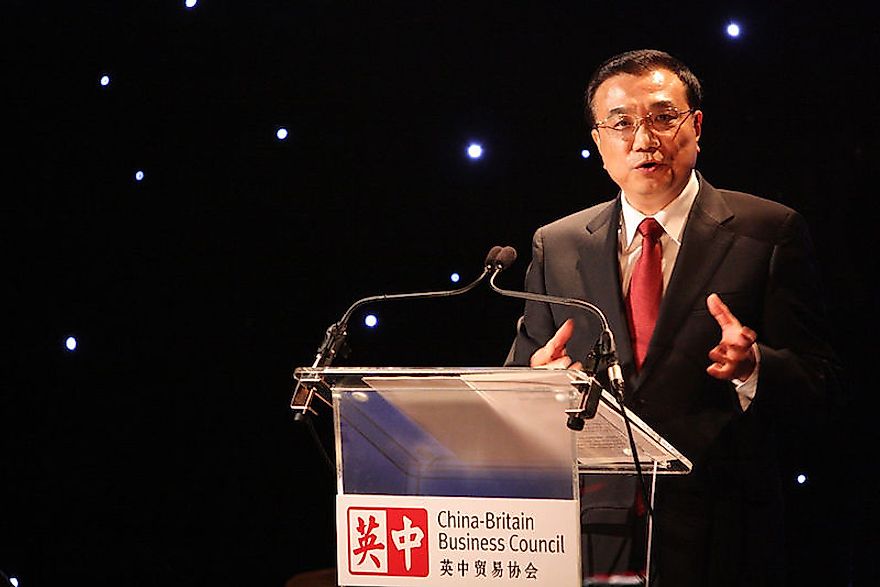Premiers Of Communist China Through History

The country is ruled by the Communist Party of China with a pyramid electoral system. The president is the head of state and serves as a ceremonial figurehead of NPC. The premier, also informally referred to as the prime minister, is the leader of the State Council in the country. Usually, the premier is approved by the National People’s Congress (NPC) within the communist party of China (CPC). This selection is done once every five years and is made concurrently with the position of the president. The premier is always a member of the politburo standing committee of the CPC. Li Keqiang is the current premier, and he assumed office in March 2013. The premier is the highest position in the Chinese government and is responsible for administering and organizing the country’s bureaucracy such as the implementing and planning of the national economic development and the state budget. The premier is supported by four vice premier, where the first ranked vice-premier serve as premier when the premier is absent.
Zhou Enlai
Zhou Enlai, born in 1898, became the first premier of China in 1949 when the country was declared the People’s Republic of China and served until his death in January 1976. He served under Mao Zedong who was the Chairman of the Communist Party of China then. Zhou Enlai played a key role in the rise to power of the Communist Party, the formation of foreign policies and the development of the country’s economy. He served as the Chinese foreign minister between 1949 and 1958 where he advocated for peaceful coexistence especially with the West. He played a key role in Richard Nixon, US President, a visit to Beijing in 1972. While Mao concentrated political struggles during the Cultural Revolution, Zhou Enlai dedicated his energy towards state affairs and protection of the mass from the effects of the revolution. Upon his death in 1976, the public turned their grief and anger in the Gang of Four leading to Tiananmen Incident.
Hua Guofeng
Hua Guofeng succeeded Zhou Enlai upon his death in 1976 as the country’s premier. Upon becoming the prime minister, he quickly ousted the Gang from power thus bringing an end to the Cultural Revolution started by Mao in 1960s. Hua criticized some aspects of the revolution including the reforms in the education system, activities of the revolutionary committee, and the Gang of Four for misleading the country. He became the first Chinese leader to go on a European tour in 1979 when he visited France, West Germany, and Britain. During the 11th session of the Central Committee of CPC, Hua was accused of confining powers to himself contrary to the spirit of the party. In 1979, he was denounced by the party for promoting the Two Whatevers policy and was subsequently replaced by Zhao Ziyang as the country’s premier.
Zhao Ziyang
Born in 1919, Zhao Ziyang was a high-ranking political leader in China. He became the third premier of PRC in 1980 after the ouster of Hua. He opposed Maoist policies and was actively involved in free-market strategies implementation. His support for Deng Xiaoping, the then moderator of CPC, gave him chairperson, especially after the Cultural Revolution. He was actively involved in fighting corruption, streamlining bureaucracy and defended the party. His policies on economic reforms placed him at odds with some party leaders. He also lost the support of Deng in the process. In 1987 he was purged and placed under house arrest for 15 years. He died in 2005 in Beijing from a stroke.
Conclusion
Other notable PRC premiers include Li Peng, Zhu Rongji, Wen Jiabao and Li Keqiang who is the incumbent after taking over the office in 2013.
Premiers Of Communist China Through History
| Rank | Premier | Term In Office |
|---|---|---|
| 1 | Zhou Enlai | October 1st, 1949 to January 8th, 1976 |
| 2 | Hua Guofeng | February 4th, 1976 to September 10th, 1980 |
| 3 | Zhao Ziyang | September 10th, 1980 to November 24th, 1987 |
| 4 | Li Peng | November 24th, 1987 to March 17th, 1998 |
| 5 | Zhu Rongji | March 17th, 1998 to March 16th, 2003 |
| 6 | Wen Jiabao | March 16th, 2003 to March 15th, 2013 |
| 7 | Li Keqiang | March 15th, 2013 to Present |







